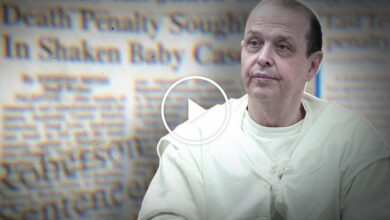
But these are just threats. They have power only if Biden believes them — believes that the party will stand firm against him even as Election Day gets closer and the risk of another Trump presidency rises.
Before primaries dominated American elections, the people who determined whether the candidate was suitable for election — delegates to the convention — included many current or former elected officials, from mayors to senators to governors. These were people who had experience in running for general elections, in attracting mainstream support and in actually governing. Now those who decide are the small number of primary voters, often more ideologically extreme than the average voter, and for whom ideological fealty is more important than electability.
In almost all other democracies, political parties still function as powerful organizations. In fact, in other democracies, the main role of political parties is to choose their candidates and platforms through some internal process and then present them to the broader public in the elections. In Britain, the Labour Party replaced Jeremy Corbyn with the more electable Keir Starmer, and the Tories have chosen several new leaders over the past six years. Australia’s Labor Party did it in 2010 as its then-leader’s popularity was plummeting.
In the United States, amid the fiery radicalism of the late 1960s and early 1970s, parties gave up that central power, embracing a primary system. The result is that in America, power moved from party leaders to party activists.
This hollowed parties out, leaving them without the capacity to shape themselves. That’s why Donald Trump could so easily take over the Republican Party and essentially turn it into a family cult. To understand how complete that transformation is, notice that besides Trump, not a single former nominee of the Republican Party for president or vice president is even attending the Republican National Convention, while the former president’s family occupies center stage and prime time.
The tragic situation facing Democrats with Biden is that he was a strong candidate against Trump in 2020 and has been an excellent president with major accomplishments in both domestic and foreign policy. His manner and tone have been dignified, decent and empathic.
But for months now, it’s been clear that this would not be enough. In early May, I pointed out that polls had Biden headed for a loss and that the key number to look at was the question of who voters felt was more competent. In 2020, Biden led Trump by nine percentage points; earlier this year, Trump led Biden by 16 points — a 25-point shift. This is obviously a reflection of people’s sense that Biden was just too old for the job, a perception he could not change. And that was before the debate.
If the party can stare down Biden, it could accomplish more than just changing its candidate. In the past few years, the party’s image has been colored by some of its more extreme and ideological elements: those active in primaries and on X (an even smaller minority). On issues like immigration, crime, identity politics, campus culture and transgender rights, it lost sight of the American mainstream. As Rob Henderson writes, Democrats espouse too many “luxury beliefs,” ideas that confer status on educated elites but are often deeply at odds with the working class’s way of life.
Changing candidates for November could be the beginning of a broader reset. Party leaders should reform the primary system to balance the power of the activist minority with the more mainstream majority — more superdelegates with the freedom to vote as they wish would be one important step. The message of the Democratic Party should be shaped by its governors, senators and mayors, not activists and academics. The next few weeks could begin a shift that would make the Democratic Party more attractive to more Americans for decades.
Read More


